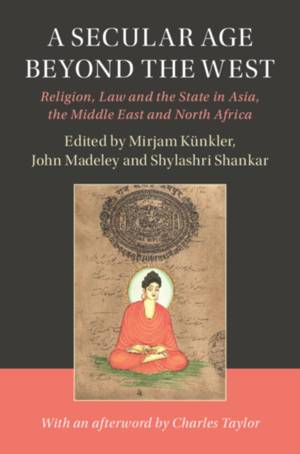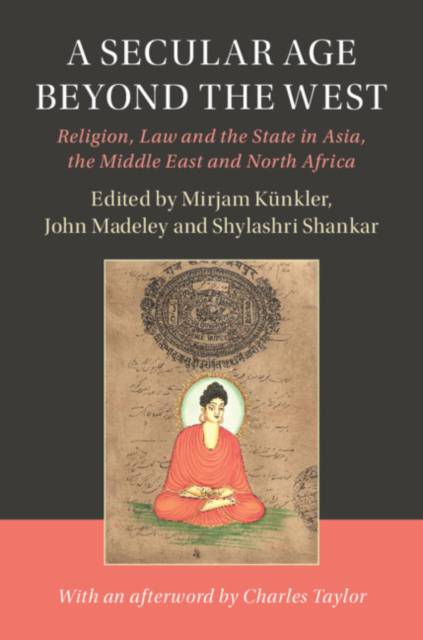
- Afhalen na 1 uur in een winkel met voorraad
- Gratis thuislevering in België vanaf € 30
- Ruim aanbod met 7 miljoen producten
- Afhalen na 1 uur in een winkel met voorraad
- Gratis thuislevering in België vanaf € 30
- Ruim aanbod met 7 miljoen producten
Zoeken
A Secular Age beyond the West
Religion, Law and the State in Asia, the Middle East and North Africa
€ 197,45
+ 394 punten
Omschrijving
This book traces religion and secularity in eleven countries not shaped by Western Christianity (Japan, China, Indonesia, India, Pakistan, Iran, Russia, Turkey, Israel, Egypt, and Morocco), and how they parallel or diverge from Charles Taylor's grand narrative of the North Atlantic world, A Secular Age (2007). In all eleven cases, the state - enhanced by post-colonial and post-imperial legacies - highly determines religious experience, by variably regulating religious belief, practice, property, education and/or law. Taylor's core condition of secularity - namely, legal permissibility and social acceptance of open religious unbelief (Secularity III) - is largely absent in these societies. The areas affected by state regulation, however, differ greatly. In India, Israel and most Muslim countries, questions of religious law are central to state regulation. But it is religious education and organization in China, and church property and public practice in Russia that bear the brunt. This book explains these differences using the concept of 'differential burdening'.
Specificaties
Betrokkenen
- Uitgeverij:
Inhoud
- Aantal bladzijden:
- 440
- Taal:
- Engels
- Reeks:
Eigenschappen
- Productcode (EAN):
- 9781108417716
- Verschijningsdatum:
- 5/07/2018
- Uitvoering:
- Hardcover
- Formaat:
- Genaaid
- Afmetingen:
- 157 mm x 235 mm
- Gewicht:
- 707 g

Alleen bij Standaard Boekhandel
+ 394 punten op je klantenkaart van Standaard Boekhandel
Beoordelingen
We publiceren alleen reviews die voldoen aan de voorwaarden voor reviews. Bekijk onze voorwaarden voor reviews.










